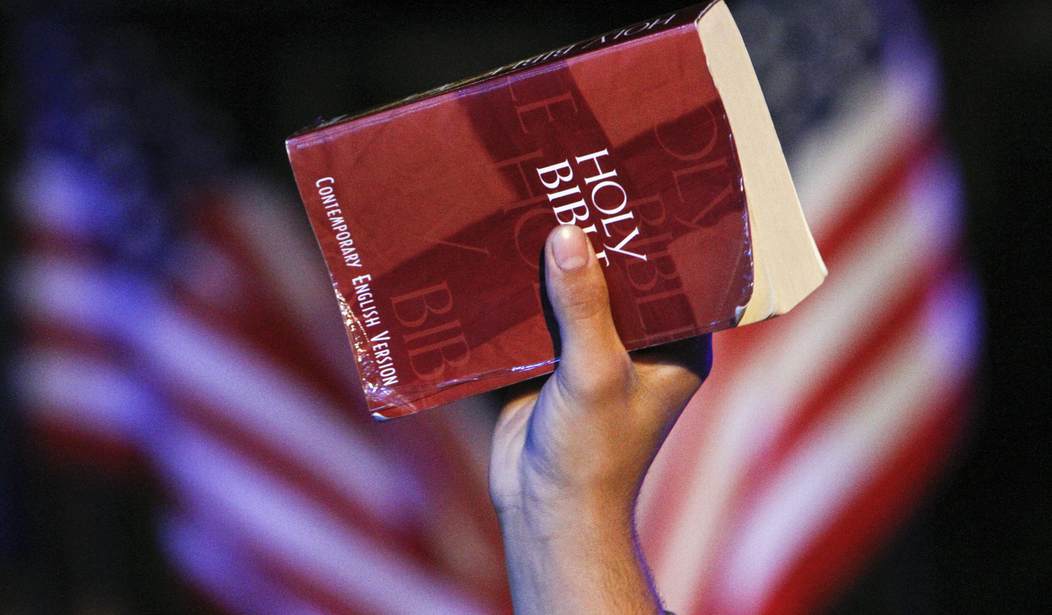Data analysts are already publishing available information about sex/gender, income, education, and racial/ethnic breakdowns of Americans who voted for Kamala Harris versus those who voted for Donald Trump in the presidential election this year.
Another data set explores the critical relationship between religious beliefs and support for presidential candidates and their policies.
By way of background, according to a Gallup poll conducted last year, 68% of Americans identify as Christians; 33% say they are Protestants, 22% are Catholic, and the remainder say they belong to another sect of Christianity or are just “Christian” generally. Seven percent of Americans—a number that has barely changed in the past 70 years—are members of “non-Christian” faiths, including 2% who are Jewish, 1% who are Muslim, and another 1% who are Buddhist.
While Christians remain a significant majority of the U.S. population, their numbers have dropped dramatically. In 1956, for example, 96% of the country called themselves “Christians,” and only 1% described themselves as having “no religion.” The latter group (sometimes called the “nones”) has seen the most significant growth in their numbers; nearly a quarter (22%) of Americans now say they belong to “no religion.”
Comparisons between the 2016, 2020 and 2024 presidential elections provide valuable insight into the role religion played in this year’s election results.
Trump has consistently done well with evangelical Protestants. In 2016, according to Pew Research, 80% of white evangelical (“born again”) Protestants voted for Trump. Immediately after the 2020 presidential election, National Public Radio published exit poll results comparing the 2016 and 2020 elections. Seventy-six percent of evangelical Protestants supported Trump in 2020, and 80% voted for him this year.
Recommended
Historically a working-class, Democratic Party constituency, American Catholics’ political loyalties have shifted somewhat in recent decades and tend now to split almost 50/50 between Republican and Democrat presidential candidates.
Not this year.
In 2016, 60% of white Catholics -- but only 26% of Hispanic Catholics -- voted for Trump. White Catholic support decreased for Trump in 2020, which may have affected results in Rust Belt/”blue wall” states with lots of Catholics, like Michigan, Wisconsin and Pennsylvania. But -- as a portent of things to come -- larger numbers of Hispanic Catholics in Florida and Texas voted for Trump in 2020.
Trump’s support among Catholics increased substantially, from 47% overall (White and other Catholics) in 2020 to 58% this year, according to Washington Post exit polls. That included a huge swing among Hispanic Catholics, nearly 60% of whom voted for Trump.
One Christian group that received a great deal of attention in 2024 was the Amish, who were heavily courted by the Republican Party’s Johnny Appleseed of voter registration, Scott Presler. Though their numbers are not huge, the Amish were motivated, highly visible and voted en masse for Trump, helping him to win the swing state of Pennsylvania.
The Jewish vote is harder to categorize, but support for Democrats has remained quite constant; Reform, Conservative and “cultural” Jews vote overwhelmingly for Democrats. According to the Jewish Virtual Library, Trump received 24% of the Jewish vote in 2016 and 30% in 2020. Final 2024 data isn’t in, but according to exit polls, nearly 80% of American Jews voted for Harris. Notably, Orthodox Jews vote differently; 74% of them voted for Trump this year. (Eighty-three percent voted for him in 2020.)
Trump also gained ground with religious believers of non-Christian faiths. Twenty-nine percent of non-Christians voted for Trump in 2020, while more than one-third (34%) voted for Trump this year. (Most Muslims preferred Green Party candidate Jill Stein or Trump over Harris in 2024.)
Voters unaffiliated with any religion are the largest number who support Democrats. Nearly 70% voted for Hillary Clinton in 2016. Joe Biden got 85% of their vote in 2020. Trump eroded that somewhat, but 71% of the “nones” still voted for Harris.
For Trump voters, regardless of religious persuasion, the issues that mattered most were immigration, the economy, and foreign policy. Polls and headlines leading up to the election suggested that government abuse and overreach were also concerns.
What does this portend for future elections?
First, if the number of Americans who identify with “no religion” continues to climb, it will be increasingly difficult for Republicans to win elections.
However, the changing face of the American electorate caused by immigration may matter less in terms of ethnicity, racial background, or country of origin than the strength of immigrants’ religious beliefs.
Hispanics and African immigrants, for example, tend not only to be Catholic but also to have conservative cultural and religious viewpoints, making some of the Democratic Party’s assumptions about the benefits (to Democrats) of unchecked immigration problematic.
Those who leave their home countries and become American citizens are just as concerned as native-born Americans about open borders; Hispanic voters in Florida and Texas tended to support the Trump/Vance ticket and other Republican candidates promising to secure the border.
It’s distinctly possible that Democrats’ strategy to bring in millions of the world’s poor and use freebies and “diversity” to appeal to them as voters (assuming, of course, that they become able to vote -- legally) will backfire on them for other reasons as well.
Immigrants fleeing crime, corruption, and societal chaos are not inclined to support policies -- or politicians -- that permit homeless people to live in the streets, legalized drug use, widespread theft, heightened crime, gang activity, and lower penalties for criminals. And this is without mentioning issues like transgender “rights” that place males in female bathrooms, locker rooms, and sports, as well as the ability of schools to “transition” children without their parent’s knowledge or over their objection, much less the risk of losing custody of their children if they object to those gender “transitions.”
“Nones” notwithstanding, 70% of Americans say their religion is “fairly” or “very” important. This year’s presidential election shows the risks of alienating vast swaths of those voters.























Join the conversation as a VIP Member